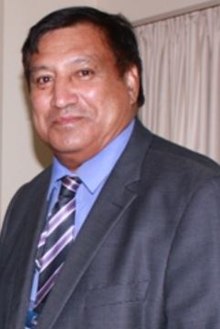Tom Marsters
| Tom Marsters | |
|---|---|

Marsters in 2011
|
|
| Queen's Representative to the Cook Islands | |
|
Assumed office 27 July 2013 |
|
| Monarch | Elizabeth II |
| Prime Minister | Henry Puna |
| Preceded by | Frederick Tutu Goodwin |
| Deputy Prime Minister of the Cook Islands | |
|
In office 10 December 2010 – 10 June 2013 |
|
| Prime Minister | Henry Puna |
| Preceded by | Robert Wigmore |
| Succeeded by | Teariki Heather |
| Personal details | |
| Born | 4 August 1945 (age 69) Palmerston Island, Cook Islands |
| Political party | Cook Islands Party |
| Alma mater |
Avele College Grimsby Institute |
Tom John Marsters (born 4 August 1945) is the 7th Queen's Representative to the Cook Islands. He is a former Deputy Leader of the Cook Islands Party and Deputy Prime Minister of the Cook Islands.
Marsters was born on Palmerston Island and educated at Nikao and Avarua Primary Schools before attending Avele Agriculture College in Samoa and Grimsby Institute of Technology in the United Kingdom. Before entering politics he worked as a public servant. He was Secretary of the Cook Islands Party from 1968 to 1999.
He was first elected to Parliament for the seat of Murienua in a by-election in 1991.
Marsters served as Minister of Works in the Cabinet of Geoffrey Henry, but resigned his position in 1997 in protest at budget cuts. He later served as a Minister in the first coalition Cabinet of Robert Woonton from 2002, but was sacked in 2003 after a coalition realignment. He rejoined Cabinet after the 2004 election, when Woonton was trying to put together a new coalition; when Woonton resigned to fight a by-election, he served in the Cabinet of Jim Marurai, holding the portfolios of foreign affairs, transport, and youth and sport.
In August 2005, Marurai sacked Cook Islands Party leader Geoffrey Henry from Cabinet, causing the CIP to reconsider its role in government. A month later, Marsters was also sacked, and the coalition formally dissolved.
The retirement of Geoffrey Henry in 2006 led to a leadership election, which saw Marsters replaced as Deputy leader by Tupou Faireka. However, both Faireka and party leader Henry Puna lost their seats at the 2006 election. After a short period in which Puna continued to serve as leader outside parliament, Marsters became leader of the opposition.
...
Wikipedia
